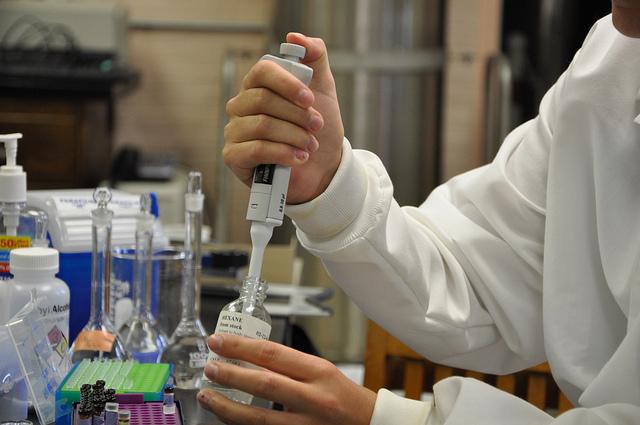A University of Wisconsin professor of pharmacy is working with a team of researchers from across the country and in Canada to test the effectiveness of higher-dose influenza vaccinations in heart disease patients.
Orly Vardeny, UW professor of pharmacy, is a co-principal investigator for the flu vaccination trial. She warned that individuals with heart disease are more vulnerable when they get influenza.
“[When you get the flu] your heart disease is more likely to deteriorate, which puts you in the hospital,” Vardeny said.
A higher dose of influenza vaccination, or quadruple the standard dose, has been shown to reduce influenza infections in older, medically stable adults.
In 2013, Vardeny contributed to a smaller-scale study that found these higher-dose vaccinations may similarly protect heart disease patients from influenza. But currently, the higher dose is only FDA approved for patients over the age of 65.
Vardeny said that this will be the first time a large trial explores the potential for this higher dose to reduce hospitalizations for patients with heart disease.
In the next couple of weeks, Vardeny said the INVESTED Trial, which stands for “Influenza Vaccine to Effectively Stop Cardio Thoracic Events and Decompensated Heart Failure,” will begin enrolling 500 patients for the 2016-17 influenza season across approximately 30 hospitals and clinics.
To support the trial, the National Institutes of Health’s National Heart, Lung and Blood Institute awarded Vardeny and other collaborating researchers a $21 million grant last February.
Vardeny said the grant has been a great opportunity to collaborate with multiple healthcare systems. Vardeny is co-investigating the study with Scott Solomon, a cardiologist at Boston’s Brigham and Women’s Hospital and Harvard Medical School professor.
Researchers at the University of Toronto, the U.S. Department of Veterans Affairs and the National Patient-Centered Clinical Research Network will help to design and implement this large-scale study.
Over the course of the next few years, the INVESTED trial will be expanded to 180 clinics and hospitals until the trial ultimately reaches 9,300 people, Vardeny said.
Vardney said that beginning the trail with fewer patients allows them to test their processes and make improvements to ultimately tackle additional patients with higher success rates.
The trial will also examine the number of strains the vaccination protects against. The higher dosage only protects against three strains of the influenza virus, whereas the standard dose protects against four strains, Vardeny said.
“We really don’t know what the right formulation is,” Vardeny said. “Is it better to be protected against more strains? Or is it better to have a higher dose to fewer strains?”
Vardeny said this trial will test which dosage sends the least amount of patients to the hospital for heart-related complications.
Beyond her research, Vardeny is hopeful this trial serves as a reminder for everyone to get vaccinated for influenza.
“I think the underlying message is that folks, especially folks with high risk conditions, should get influenza vaccinations,” Vardeny said. “So we’re studying this question, but we’re also promoting, you know, people should get their flu shots to be better protected and stay healthy during flu season.”













